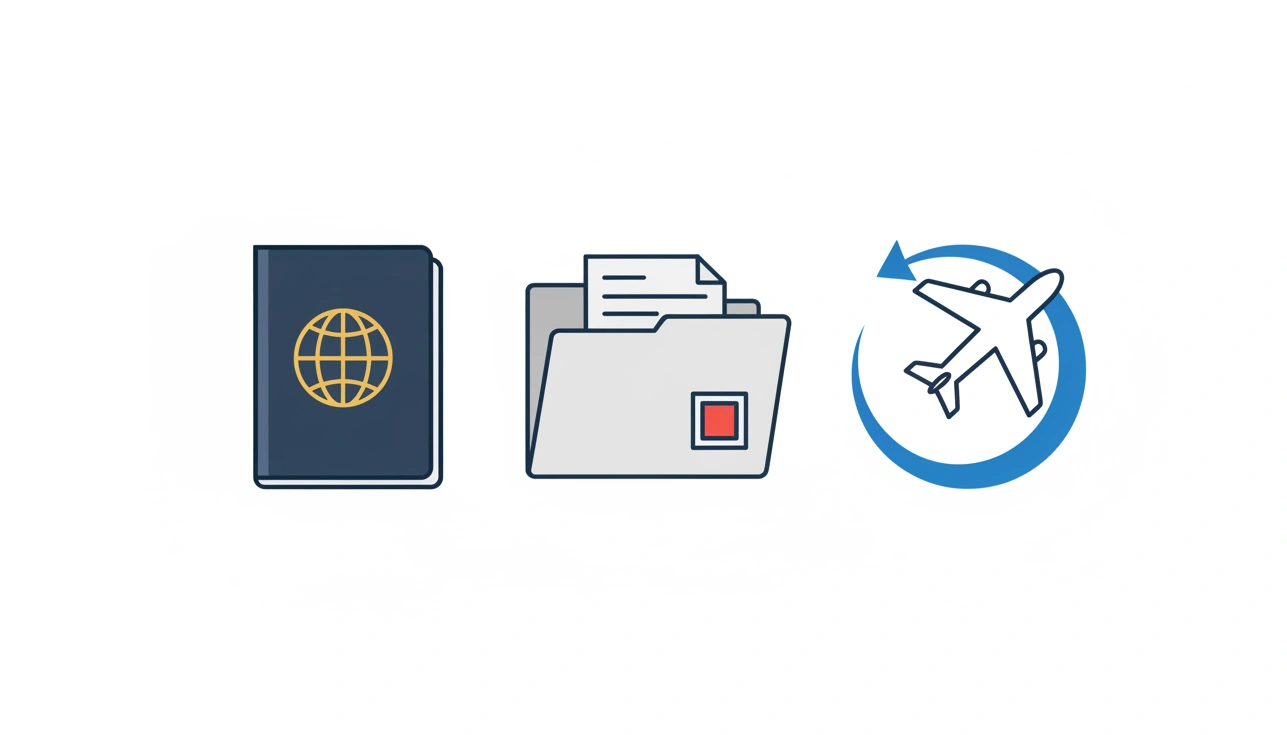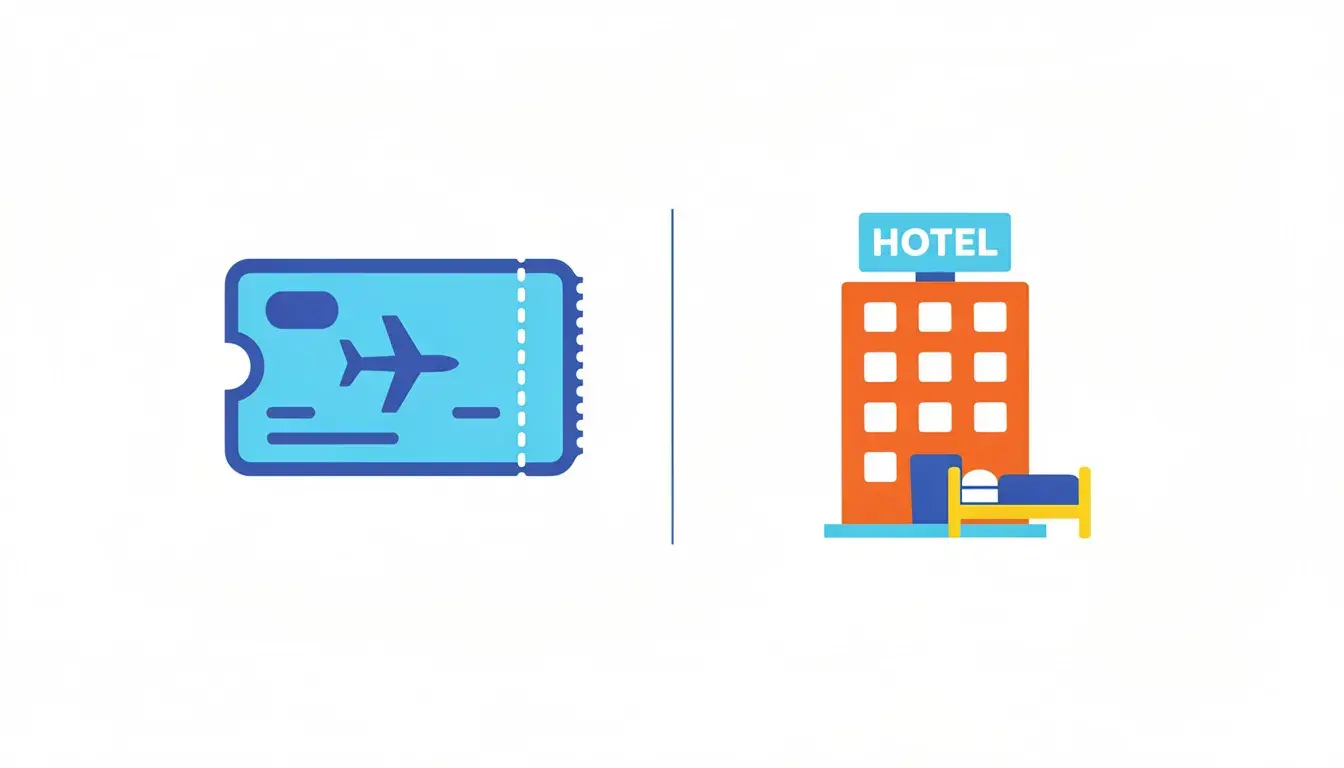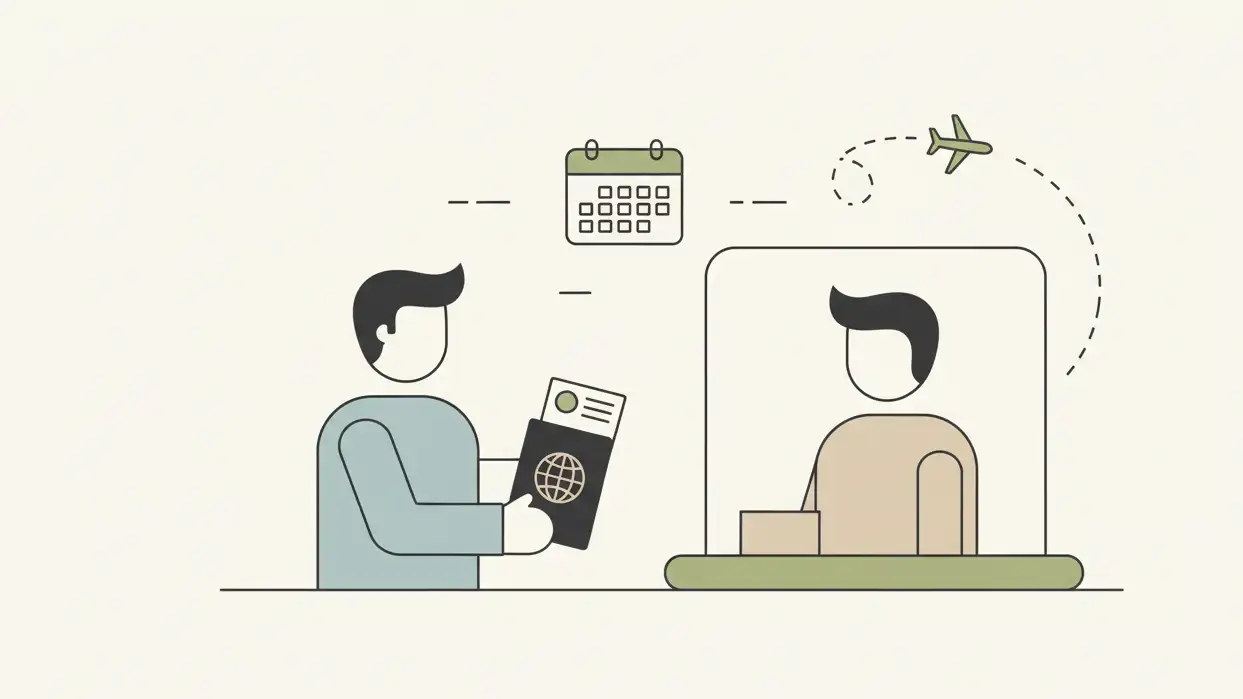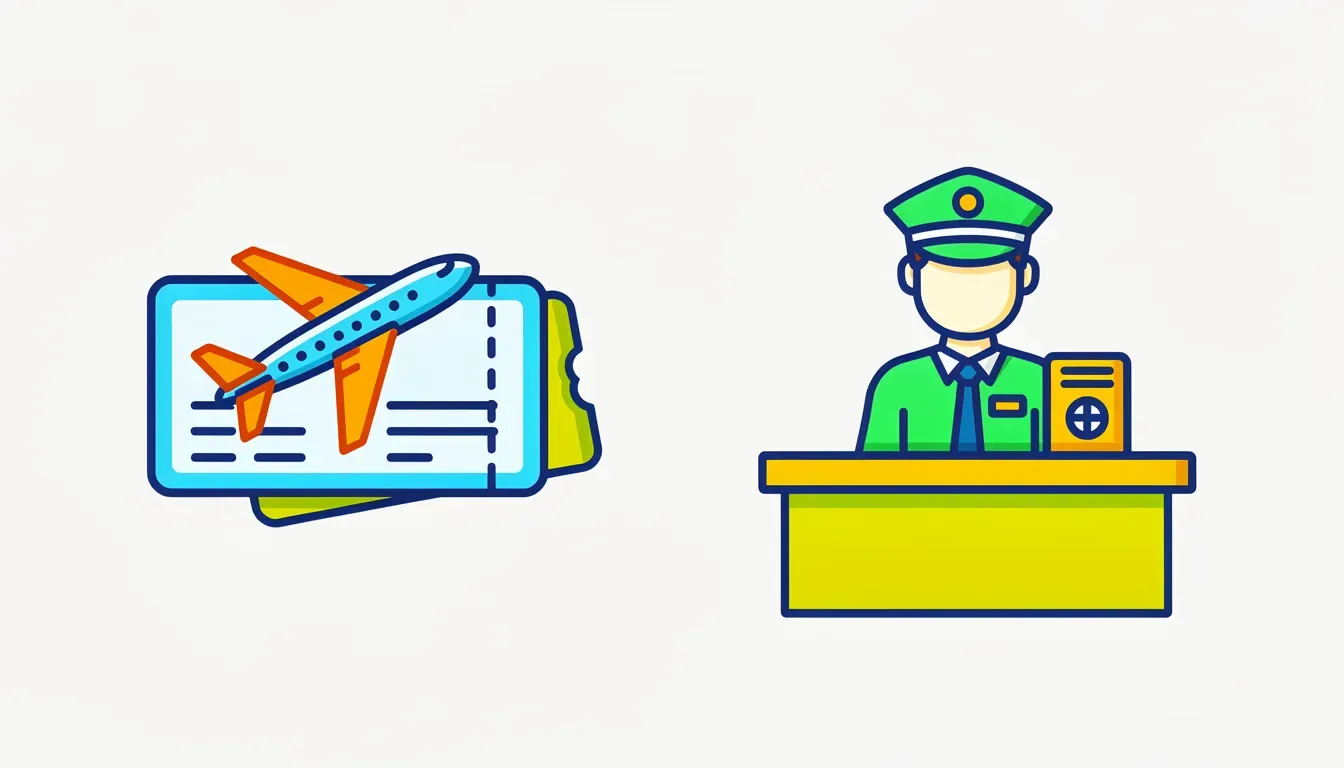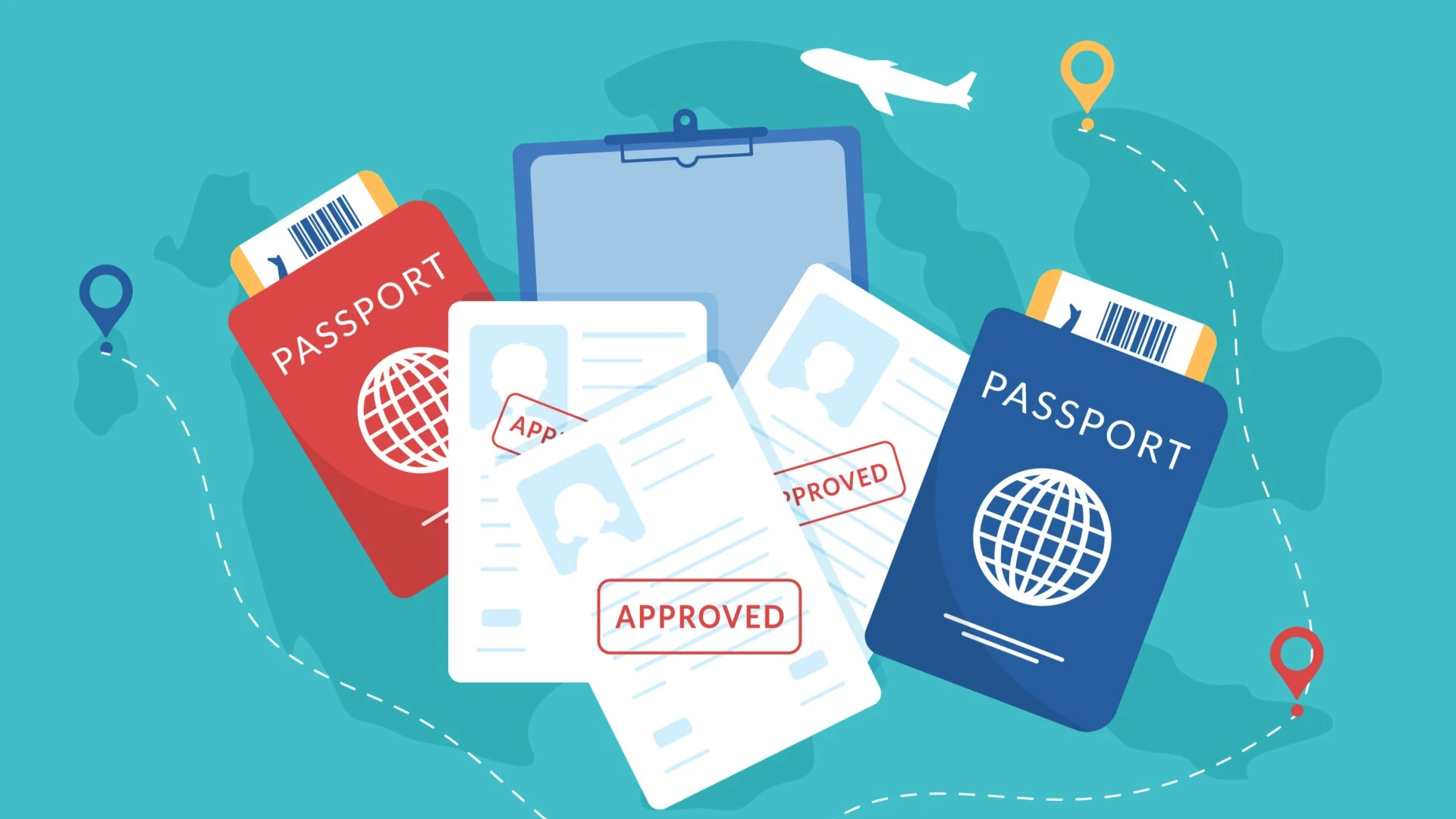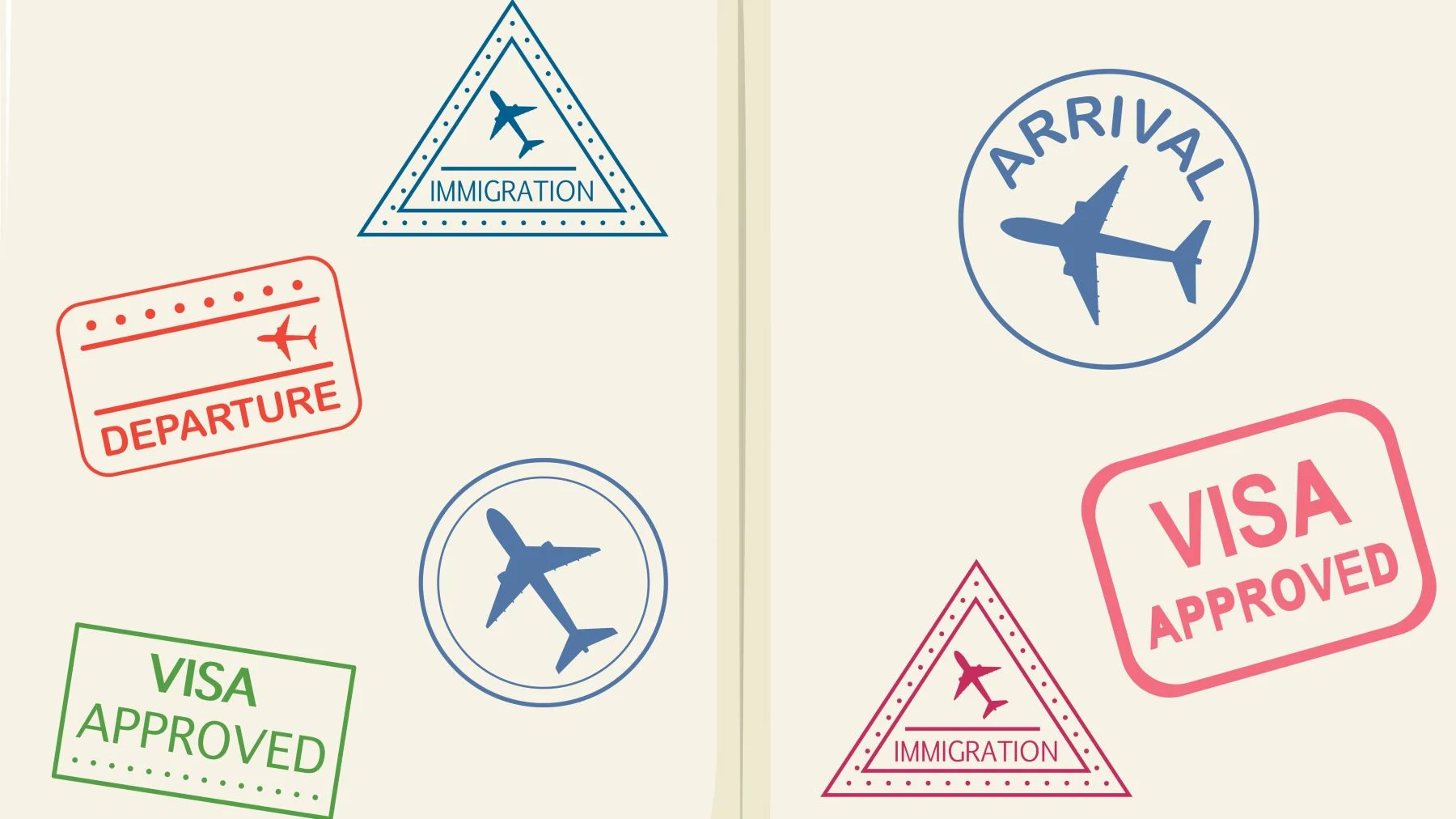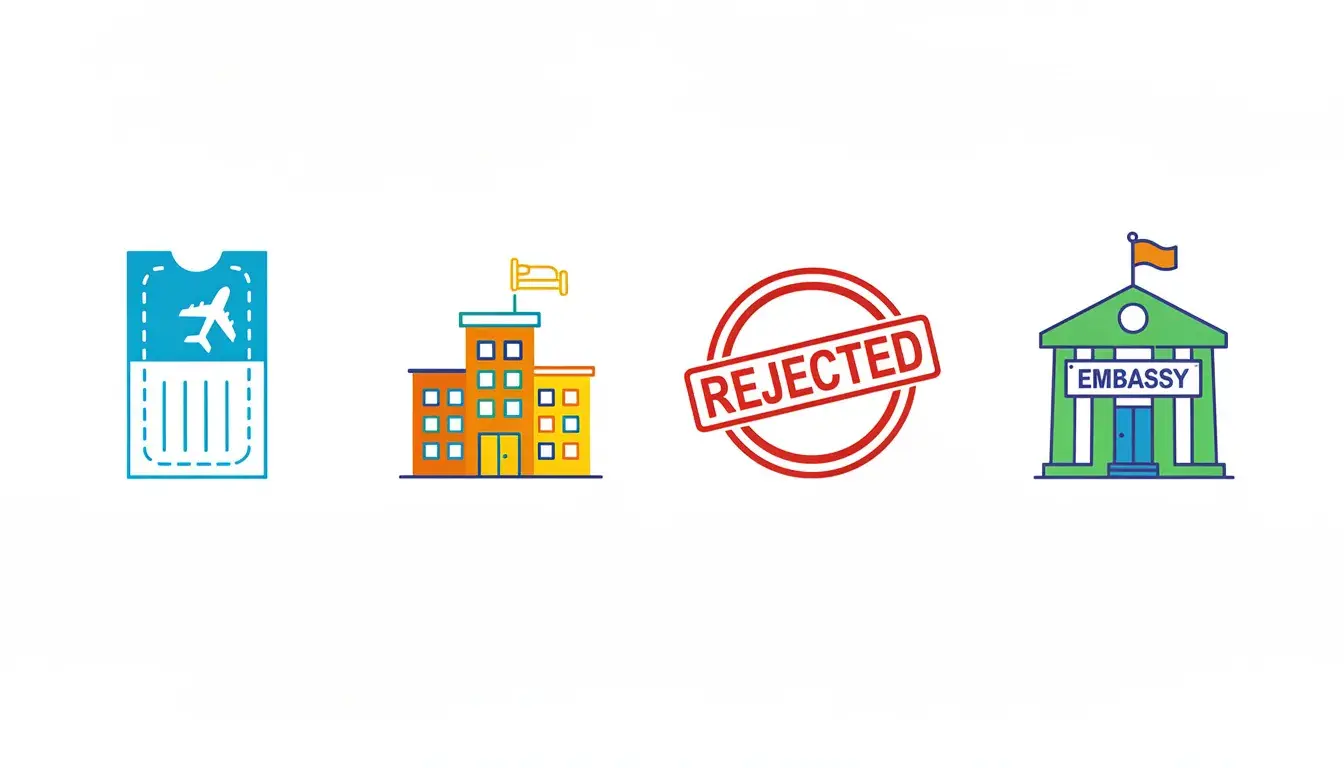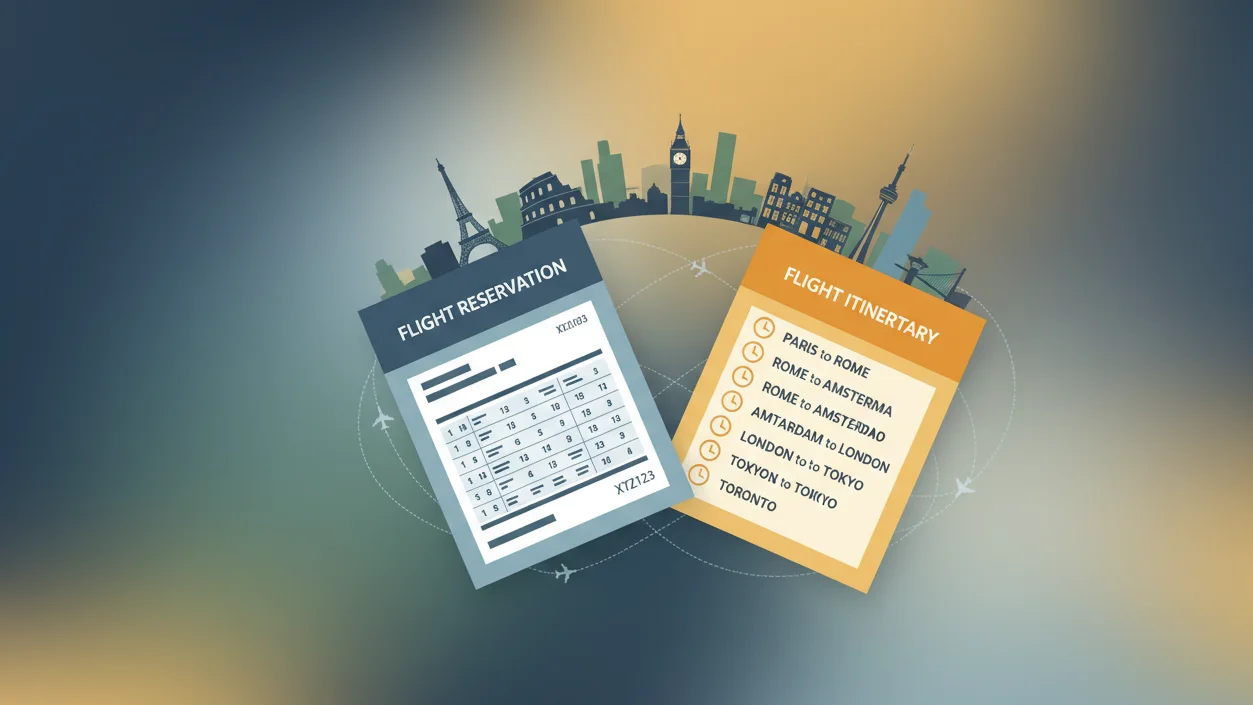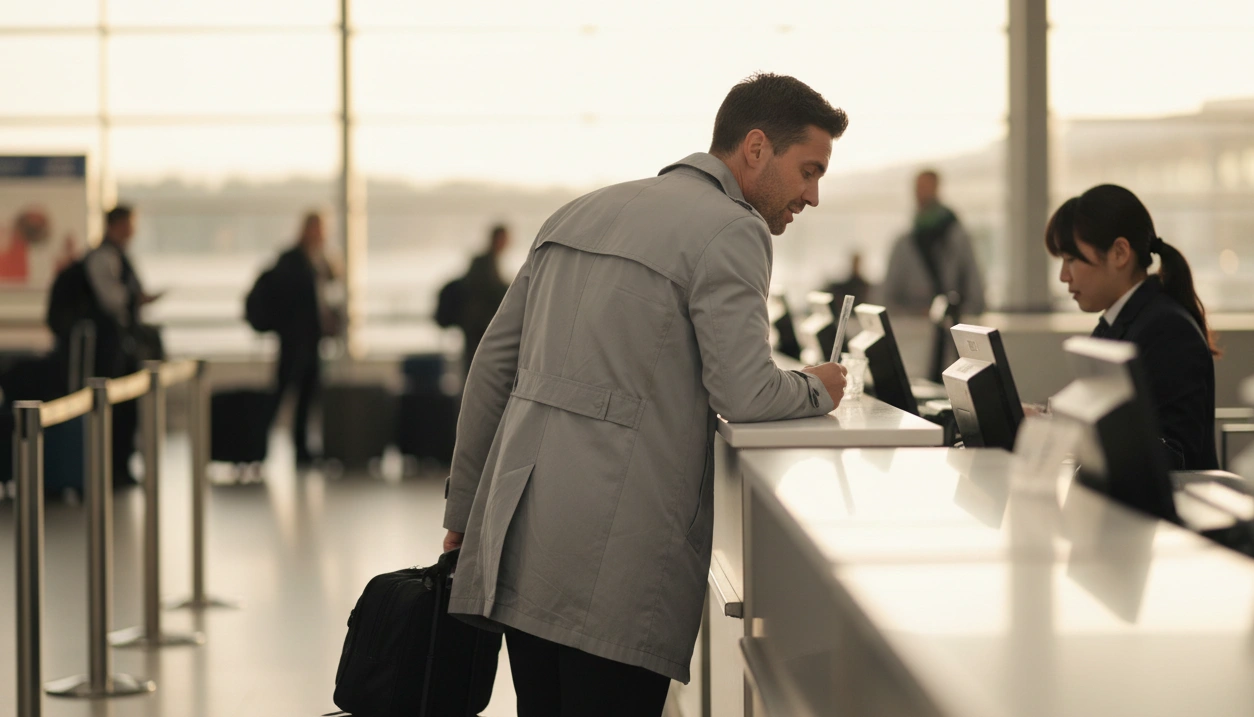Do You Need A Flight Ticket For Malaysia Tourist Visa?
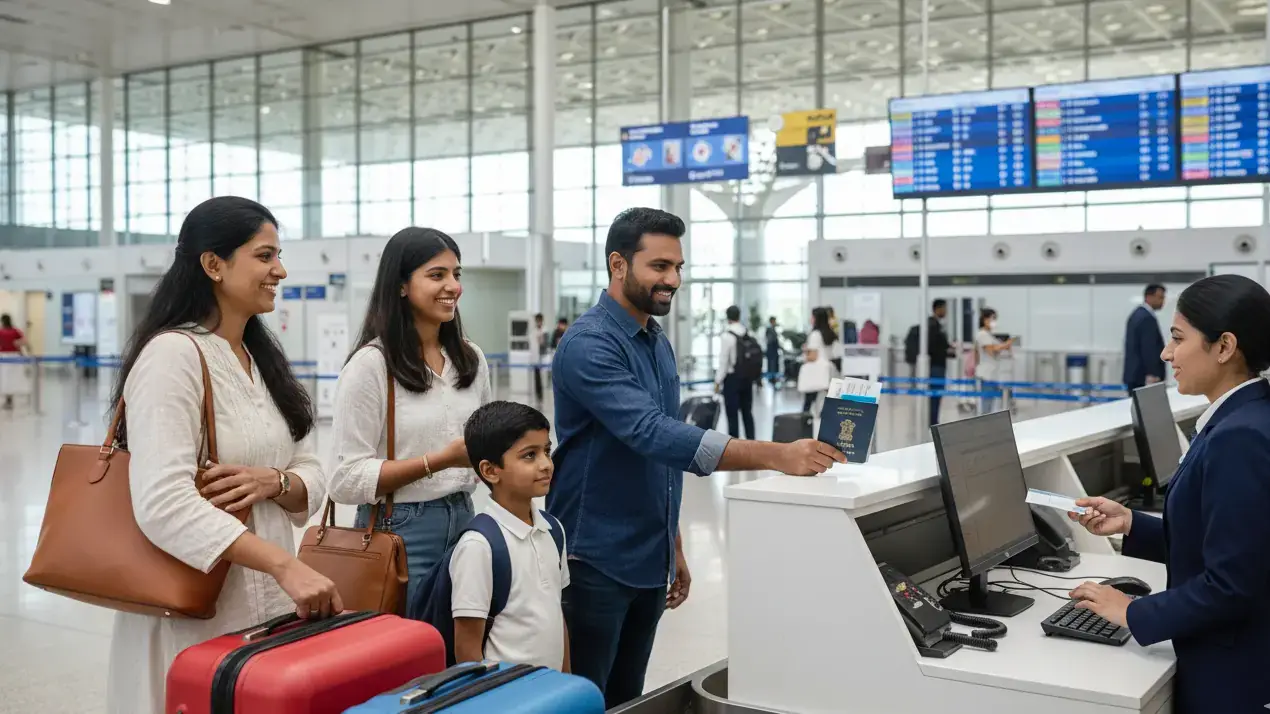
Malaysia Tourist Visa: Real Rules for Flight Tickets and Dummy Reservations
Planning a trip to Malaysia from India comes with a surprising question: do you really need a flight ticket before your tourist visa is approved? The answer is not as straightforward as you might think. Whether you are a student heading out for a short break, a first-time traveler exploring Southeast Asia, a family planning a vacation, or a digital nomad working remotely, understanding when and what type of travel proof is required can save you time, money, and unnecessary stress. For many Indian travelers, a dummy ticket serves as the perfect temporary solution to meet these requirements without committing to full fares upfront.
Airlines, visa authorities, and immigration officers each have their own expectations. Knowing the differences and preparing the right documents can mean the difference between a smooth check-in and a last-minute scramble. Let’s unpack exactly what you need to enter Malaysia confidently and efficiently. Before you submit documents, explore more tips in our comprehensive travel blogs or check the about us page to learn how we support seamless visa journeys. This preparation not only aligns with Malaysia's entry rules but also boosts your application's credibility.
No — you do not need to buy a real flight ticket to apply for a Malaysia tourist visa. Malaysian immigration and VFS centers accept a verifiable flight reservation (also called a dummy ticket) as long as it includes real airline details and a valid PNR. This gives you embassy-approved proof of travel without paying for a non-refundable ticket. Trusted services like BookForVisa.com provide instant, PNR-verified reservations accepted for Malaysia eVisa, sticker visa, and entry checks — helping travelers avoid rejection and protect their money.
Last updated: November 2025 — validated with current Malaysia eVisa, VFS, and Immigration Department requirements.
Table of Contents
Before you book anything, it helps to separate the two questions. One is what Malaysia’s visa rules require. The other is what airlines and immigration officers will actually ask for at check-in and on arrival. The answers can differ, and that gap is where most headaches start. For Indian passport holders, recent updates to visa exemptions have simplified short stays, but proof of onward travel remains a key checkpoint. Dive deeper into common queries via our FAQ section.
Visa Rules, Airline Checks, And Immigration Reality
Start with the basics you need to keep straight. Malaysia’s official visa rules determine whether you must apply for an eVisa or an embassy sticker. Airlines use Timatic and their own policies to decide whether to board you. Immigration officers at the airport have the final say at the border. Each checkpoint looks for evidence that your trip is short and credible. Reduce visa stress with an embassy-ready dummy ticket booking.
How Malaysia’s Visa Policy Affects Foreign Nationals
Rules can change, so check official sources before you plan. Recently, Malaysia extended visa-free entry arrangements for Indian passport holders for short tourist stays. This means many Indian travellers can enter Malaysia without applying for a visa for a limited number of days, subject to the effective dates announced by Malaysian authorities. Always confirm the current exemption window and permitted length of stay on the official Malaysia Immigration portal or the Malaysian High Commission pages before booking. For those requiring a visa, the process has streamlined with eVisa options, but proof of travel intent is still scrutinized.
Even when you do need an eVisa or embassy sticker, the visa application form itself usually does not demand a paid ticket. The application will ask for travel dates and an itinerary. The stronger your overall file looks, the less friction you invite. Official portals will show exactly when a printed eVisa or approved application must be presented on arrival. To enhance your application, consider pairing it with verifiable reservations that align perfectly with your plans.
Why Airlines Care: Timatic And Carrier Liability
Airlines do not want to be stuck with a passenger who is refused entry. That is why they consult Timatic. Timatic is the industry database that airlines and their ground agents use to check passport, visa, and onward-travel rules for each route. If Timatic flags a “proof of onward travel may be required” entry, the carrier may ask you for a return or onward booking before it lets you board. For routes from India, this often means showing a IATA-compliant reservation to satisfy checks.
Practical result: even if your visa or visa-exempt status is fine, the airline at Mumbai or Delhi can refuse boarding if they have no reasonable assurance you will be admitted at your destination. This is a carrier-level risk-control step, not a change in Malaysia’s visa law. Travelers frequently overlook this, leading to last-minute purchases—avoid it by preparing in advance.
Airport Check-In Practices In India
At Indian airports, check-in agents follow airline checklists closely. The most common items they verify are:
- Passport validity and blank pages.
- Valid visa or entry clearance, when required.
- Return or onward booking if Timatic or the carrier’s policy requires it.
- Basic proof of funds or accommodation when flagged.
Agents will often request a printed booking or a verifiable PNR that they can check on their system. If you show a consistent set of documents, check-in is straightforward. If documents mismatch or a booking has expired, you may face denial at the counter or asked to buy a ticket on the spot. Pro tip: Always carry backups, as digital glitches happen.
What Immigration Officers Look For On Arrival
Once you land, immigration officers assess your trip under a simple test. They ask: does this person have a short, reasonable plan and reason to return? They check:
- Purpose and length of stay.
- Consistency between your arrival date, accommodation, and itinerary.
- Evidence you can financially support your visit.
- Travel history and ties that indicate you will return to India.
For visa-exempt visitors, a return or onward ticket is often the fastest way to prove intent. For eVisa holders, presenting the printed eVisa and matching reservations keeps the interview short. Officers may ask follow-up questions when your paperwork looks vague or open-ended. In high-traffic seasons, queues build quickly—organized docs speed things up.
How These Differences Affect Different Traveller Types
Students
- If you are on a short university break, show your university leave letter and a return booking. That reassures both check-in staff and immigration.
First-Time Applicants
- Without travel history, your itinerary and return booking matter more. Keep dates tight and documents clear.
Family Visitors
- An invitation letter helps. But invitation letters should match your travel dates and the accommodation evidence.
Digital Nomads And Self-Employed Travellers
- Show recent invoices, client letters, or tax documents to demonstrate ties to India. A verifiable onward reservation adds credibility without forcing a full-ticket purchase.
Each traveler profile brings unique considerations. For instance, students might benefit from attaching academic transcripts, while families could include school enrollment proofs for children. Tailoring your docs to your status minimizes red flags.
How To Reduce The Risk Of Being Stopped
Match everything. That means:
- Same names and passport number on all bookings and documents.
- Travel dates that match your stated length of stay.
- A verifiable PNR or reservation that can be checked at the counter.
- Printed copies of key reservations for check-in and arrival.
If you are connecting via a third country or using low-cost carriers on separate tickets, allow generous layover time and be ready to show the full route at check-in. Separate tickets create friction because each carrier assesses risk independently. To further safeguard, consider travel insurance that covers documentation issues.
Quick, Practical Summary
- Malaysia’s visa rules determine whether you must apply; airlines and immigration enforce entry at their checkpoints.
- Airline staff use Timatic and carrier policy to decide boarding. Be ready with verifiable reservations.
- Immigration officers want a believable exit plan and proof of accommodation and funds. Match your documents.
- For Indian travellers, small details make a big difference: name spellings, passport number, consistent dates, and a clear itinerary.
When you prepare documents that tell the same story at every checkpoint, the trip becomes routine. That is how you move from doubt to confidence, from check-in to touchdown. Expanding on this, many travelers find that integrating a flexible proof like a dummy ticket early in planning prevents disruptions.
What Counts As Acceptable Proof Of Onward Or Return Travel
Good. Before we list acceptable proofs, remember this: the document you choose must do two jobs. It must convince the airline you will not be stranded, and it must convince the immigration officer you will leave when you say you will. Pick proofs that serve both audiences. In practice, this often points to options like a dummy ticket for initial submissions.
Here are the options that actually work in real travel situations. Each one has pros and cons for Indian travellers. Read them with your own trip in mind. When you need proof fast, book a dummy ticket. This approach is especially useful during peak visa seasons when processing delays occur.
Confirmed Return Or Onward Flight
A paid, confirmed return ticket is the simplest evidence. It gives a clear exit date and is easy for agents to verify.
Why it helps
- Shows exact return date to match your stay.
- Reduces questions at check-in and immigration.
- Preferred when you have fixed plans or short university break.
What to check
- Match the name exactly to your passport.
- Ensure the passport number is present if possible.
- Prefer refundable or changeable fares when booking early.
Practical tip for students and family visitors
- Attach a short employer or university leave letter if you are returning to work or study.
- Match the ticket dates to the leave approval to create a consistent story.
For longer stays, combining this with multi-city itineraries can demonstrate thorough planning, appealing to officers reviewing extended tourist visas.
Verifiable Reservation Or PNR (Temporary Holds And Proofs)
A verifiable reservation with a live PNR often satisfies carriers and visa officers. It proves intent without forcing a full-priced purchase.
When to use it
- If visa processing time is uncertain.
- If you want to avoid blocking funds on a full fare.
- When you need something airlines can check instantly.
What makes a reservation credible
- A live PNR or booking reference that an airline or immigration desk can validate.
- Clear routing, flight numbers, and traveler name matching your passport.
- A visible expiry or validity window for the hold.
Where travellers find value
- Some providers issue verifiable reservations tailored for visa submissions.
- For example, a verified reservation with a live PNR reduces friction at check-in and is accepted in most visa files. BookForVisa.com offers such verifiable reservations that arrive instantly and include checkable PNRs. Use this kind of reservation when you need a low-cost, verifiable proof without buying a full ticket.
This option shines for budget-conscious travelers, allowing adjustments as visa outcomes unfold without financial penalties.
Refundable Or Flexible Fares
A refundable ticket bridges certainty and flexibility. It reads like a confirmed return while letting you change plans without heavy losses.
Best use
- If your travel dates are likely to shift after visa approval.
- If you want the safety of a paid ticket but still need flexibility.
Keep in mind
- Refundable fares cost more. Balance the premium against the risk of ticket changes.
- Keep receipts and refund policy details with your documents.
Ideal for uncertain schedules, these fares provide peace of mind during the visa wait period.
Non-Air Exits: Overland And Sea Options
Leaving by land or sea is valid proof of onward travel when done correctly. Popular routes from Malaysia include bus, train, and ferry connections to Singapore, Thailand, or Brunei.
What to present
- Cross-border bus or ferry bookings with passenger names and dates.
- Proof of entry eligibility at the next country, such as a valid visa for Thailand or a Singapore entry pass if required.
- Timed connections that make practical sense. Border officers notice implausible schedules.
Cautions for Indian travellers
- Some airlines may still insist on an air return if your outbound flight is by plane.
- Transit countries may require their own onward proof even for land crossings.
For adventure seekers, this adds variety but requires extra verification of regional visa rules.
Internal Itineraries And Sequential Bookings
A structured internal itinerary strengthens a one-way travel plan. It shows movement and intent to exit within a set period.
Use this when
- You travel within Malaysia across multiple cities.
- You have a long trip but can show booked stays and internal transfers.
Examples to include
- Intercity flights or train tickets.
- Hotel bookings for consecutive dates.
- Tour bookings or event tickets for specific dates.
This layered approach builds a narrative of purposeful travel, particularly for cultural explorers.
Evidence Standards For Single-Entry Visa: What Officers Actually Check
Officers and airline staff scan for a few clear signals. Make sure your documents tick these boxes.
Name And Document Consistency
- Exact name spelling across passport, reservation, and visa application.
- Correct passport number if shown on booking.
PNR Verifiability And Route Coherence
- A checkable PNR or reservation reference.
- Logical routes without impossible layovers or huge unexplained gaps.
Date Alignment And Validity Windows
- Reservations that cover your intended travel window.
- Holds or reservations that remain valid through the visa processing time.
Supporting Proofs That Matter
- Accommodation matching the trip dates.
- Bank statements or proof of funds for the visit.
- Invitation letters with host contact details when visiting family.
Beyond basics, including recent travel stamps can subtly reinforce your profile as a reliable visitor.
Quick Rules For Indian Travellers
Keep the following practical rules in mind when you prepare proofs.
- Always match names and passport data. Small mismatches cause delays.
- Use verifiable PNRs when you do not want to buy a full ticket.
- If using overland exits, carry proof that you can enter the next country.
- Prefer refundable fares if your dates may change after visa approval.
- Keep printed and digital copies. Mobile-only access can fail at counters.
Choose the document that best fits your risk tolerance. A confirmed return is strongest. A verifiable reservation is the best low-cost compromise. Overland exits work if you show clear eligibility to enter the next country. Whatever you choose, make sure the document is verifiable, consistent, and aligned with the rest of your visa file. That consistency is what gets you from check-in to arrival without surprise.
How To Meet Verification Standards For Malaysian Travel
Even if you have a visa or qualify for visa-free entry, airlines and immigration officers want to see that your travel plans are solid. For Indian travellers, demonstrating clear intentions to leave Malaysia is crucial. A well-prepared file can save hours of stress at check-in or at the immigration counter. Understanding which documents satisfy both airlines and immigration authorities is the key to a smooth journey. Skip the uncertainty at check-in—choose a trusted dummy ticket booking. 👉 Order your dummy ticket today for instant peace of mind.
Why Airlines And Immigration Care About Proof
Airlines face penalties if passengers are denied entry. Immigration control posts at major terminals like Kota Kinabalu International Airport, Bayan Lepas International Airport, Langkawi International Airport, and Senai Airport verify that travellers entering Malaysia have credible plans to leave. Even Indian nationals holding a valid single entry visa or travelling under visa free entry may be asked for proof of onward travel.
A confirmed flight ticket or verifiable reservation reduces friction at check-in. Without it, airlines may refuse boarding, and immigration officers can question your intentions, especially if your stay in Malaysia appears inconsistent with submitted documents. This scrutiny has intensified post-pandemic, emphasizing robust documentation.
Aligning Documents With Entry Requirements
Your passport must have at least six months’ passport validity from the date of entry. Immigration officers expect foreign nationals to present required documents that demonstrate a genuine plan for their visit. For Indian travellers, this includes:
- A completed Malaysia digital arrival card or eVisa confirmation.
- Confirmed flight ticket or verifiable PNR.
- Accommodation bookings or an invitation letter if visiting family.
- Proof of funds to cover your stay, including travel insurance if requested.
Consistency across all documents is essential. Airline staff at Bayan Lepas International Airport or immigration officers at Kuching International Airport quickly check dates, names, and visa type against your flight and stay details. Mismatches here can trigger secondary inspections, delaying your entry.
Choosing The Right Type Of Proof
Different proofs serve different purposes. Your goal is to satisfy both airline policies and immigration requirements.
Full Paid Flight Ticket
- Ideal when your travel dates are fixed and visa fees are paid.
- Shows a clear exit plan to immigration officers.
Verifiable Reservation / Dummy Ticket
- Works perfectly if your visa application is pending or processing times are uncertain.
- Shows airlines and immigration a live booking without purchasing a full fare.
- Providers like BookForVisa.com issue verifiable PNRs accepted by most Malaysian authorities.
Refundable Ticket
- Offers flexibility if visa processing time or travel plans shift.
- Carry receipts to demonstrate changeable or refundable status.
Selecting based on your timeline—dummy tickets for speed, full tickets for certainty—optimizes costs and convenience.
Timing Your Booking Strategically
Booking too early can tie up funds if dates change. Booking too late can lead to denial at check-in. A smart strategy for Indian nationals:
- Submit your malaysia visa application first or confirm eligibility for visa free entry.
- Obtain a verifiable reservation during processing.
- Purchase a confirmed flight ticket once the visa is issued.
This approach minimizes financial risk while ensuring your documents remain valid and verifiable through boarding and immigration. Factor in peak seasons like December, when delays spike.
Special Cases For Indian Travellers
Separate Tickets And Low-Cost Airlines
- If your itinerary involves a separate PNR, carry all tickets to show continuity.
- Low-cost airline bookings may restrict name corrections. Always match your passport holders details exactly.
Transit Without Visa
- For connections through Singapore, Thailand, or Indonesia, check transit rules in advance.
- Carry proof of onward eligibility to avoid boarding refusals.
Families And Minors
- Include birth certificates and custody documents for minor children.
- Ensure all names match the passport and arrival card.
Self-Employed And Digital Nomads
- Bring proof of work or invoices to show ties to India.
- Pair with a verifiable reservation to strengthen your visa application.
These cases highlight the need for customized prep; digital nomads, for example, often add remote work proofs like Zoom logs.
Presenting Documents At Immigration
Airports like Miri Airport, Bukit Kayu Hitam, and Sungai Tujoh expect well-organized documentation. Present everything clearly to speed up inspection:
- Passport and approved Malaysia visa or eVisa.
- Printed flight ticket or verifiable PNR.
- Accommodation bookings or invitation letters.
- Malaysia digital arrival card confirmation.
- Travel insurance policy or proof of funds.
Neatly prepared folders prevent repeated requests from officers and reduce travel stress. Digital backups via apps like Adobe Scan ensure accessibility.
Common Pitfalls And How To Avoid Them
- Expired or mismatched bookings – verify all dates match across uploaded documents and your itinerary.
- Separate low-cost tickets – clarify connections and timings.
- Incomplete arrival forms – ensure digital arrival card and other forms are complete before departure.
Additional pitfalls include overlooking currency exchange proofs for funds; always convert to MYR equivalents.
Quick Checklist For Indian Travellers
- Passport with at least six months’ passport validity.
- Approved malaysia visa or proof of visa-free entry.
- Confirmed flight ticket or verifiable PNR.
- Accommodation bookings matching your stay in Malaysia.
- Travel insurance and proof of funds.
- Printout of Malaysia digital arrival card and required documents for immigration.
Indian travellers who align flight tickets, visa documentation, and accommodations demonstrate credibility to both airlines and immigration officers. Whether you have a full confirmed flight ticket or a verifiable PNR from a trusted provider, consistent, credible documents allow you to enter Malaysia confidently. Careful preparation ensures a smooth journey from departure to arrival. To expand, consider environmental factors like monsoon seasons affecting internal plans.
Navigating Special Scenarios And Border Presentation
Before you fly, know the sticky scenarios that cause the most trouble. Families, one-way travellers, separate low-cost tickets, and transits each have their own rules. Prepare for these situations and you remove most surprises. Heading to Malaysia? Book a dummy ticket now for hassle-free travel. This is particularly vital for multi-leg journeys common from India.
When One-Way Travel Is Okay — And When It Isn’t
One-way tickets are common for flexible travellers and digital nomads. They are also a red flag for some airlines and immigration officers. You can travel one-way, but you must show credible onward plans.
What helps when you have a one-way ticket:
- A printed itinerary that shows onward travel within a reasonable period.
- Proof of funds to cover your stay until you leave.
- Booked accommodation for the first 7–14 days to show immediate plans.
- Evidence of ties to India such as employment letters, university enrolment, or property documents.
What does not help:
- Vague statements such as “will decide after arrival.”
- No proof of onward movement or no financial backing.
For one-way enthusiasts, layering with bus passes to neighboring countries often resolves concerns.
Families And Minors: Paperwork You Cannot Skip
Travel with children raises the scrutiny level. Officers want to ensure minors travel legally and safely.
Must-have documents for families:
- Child’s passport and visa if required.
- Birth certificate that shows parent names.
- Notarized consent letter if one parent is not travelling.
- Court custody documents when applicable.
- Copies of parents’ passports and contact details.
Practical tips:
- Keep original custody or consent documents in a separate, clearly labelled folder.
- If grandparents or other relatives are hosting the child in Malaysia, include a short invitation with contact details.
- Schools or colleges may require a leave letter. Carry it for quick verification.
Families should also pack child-specific meds and itineraries to ease officer queries.
Separate Tickets And Low-Cost Carrier Connections
Booking separate legs on budget carriers can save money. It can also create the most common check-in headaches.
Risks of separate tickets:
- Baggage is not checked through. You must re-check luggage and clear immigration during connections.
- If the first flight is delayed and you miss the second, recovery costs are on you.
- Each carrier assesses you independently at check-in.
How to reduce risk:
- Allow long connection windows to absorb delays.
- Print both itineraries and highlight connections.
- Know the transit rules of the connecting country. Some transfers require visa or landing permits.
- Consider a travel insurance policy that covers missed connections if you use separate tickets.
Budget hacks like AirAsia combos work well with printed timelines.
Transit, Overland Exits, And Regional Crossings
Leaving Malaysia by land or sea is valid for showing onward travel. It can still raise questions at check-in, particularly if the next border has its own entry rules.
What to prepare for overland exits:
- Tickets or reservations for buses, ferries, or trains to the next country.
- Valid visas for the country you will enter next, if required.
- Contact details for transport providers or tour operators.
Transit tips:
- For transits via third countries, always check whether a transit visa or proof of onward travel is required.
- Keep printed confirmations for every leg, even short ferry trips.
Regional gems like Penang to Langkawi ferries pair nicely with e-tickets.
How To Present Documents At Check-In And At Immigration
Presentation matters more than people think. Officers process dozens of travellers quickly. Make their job easy and they will make yours quick.
Organizing your file:
- One A4 folder with labelled sections: passport and visa, flight bookings, accommodation, proof of funds, supporting letters.
- A one-page itinerary summary at the front with dates, PNRs, and contact numbers.
- Highlight the PNRs and return/onward dates so agents can find them at a glance.
At the counter and at the gate:
- Offer the printed itinerary first and the digital copy only if asked.
- Be calm and concise when answering questions. Short, direct answers work best.
- If an agent asks for additional proof, hand over the relevant page rather than searching through your bag.
Use tabs for quick access; it impresses and accelerates processing.
What To Do If You Face Extra Questioning Or Are Denied Boarding
Even with good papers, there are times you will face extra checks. Stay composed and follow a simple escalation path.
Step-by-step response:
- Ask the agent politely what specific document they need to clear you.
- Offer any additional proof you have on hand, such as a leave letter, bank statement, or host contact.
- Request to speak with a supervisor if the agent is firm and you believe your documents are in order.
- If denied boarding, keep receipts. Airlines are responsible for rebooking rules that apply to refused passengers in some jurisdictions.
- Contact your visa processing centre or the nearest consulate if the issue is about visa validity. They can often clarify an officer’s question.
Post-denial, document everything for potential reimbursements via airline policies.
Small Habits That Avoid Big Problems
These are quick routines that save time and stress.
Carry these items in your hand luggage:
- One printed copy of the visa and passport bio page.
- Printed PNR and one digital copy accessible offline.
- One-page itinerary with phone numbers for hosts and hotels.
- Scanned copies of custody documents or consent forms for minors.
Check these before you leave:
- Names match exactly across all documents.
- Dates line up across flight, hotel, and any invitation letters.
- Holds and reservations are still valid and have not expired.
You travel more easily when you reduce doubt. If every document answers a likely question before it is asked, you will move through check-in and immigration quickly. Plan the small details. Carry the right papers. Stay calm. Then you enjoy the trip, not the paperwork. Bonus: Update your docs app for real-time sharing with companions.
Malaysia Tourist Visa — Travel Starts With Smart Preparation
When it comes to visiting Malaysia, preparation is everything. Having a valid passport, flight arrangements, and, where needed, an approved e visa makes a big difference at check-in and with the immigration department. Families, one-way travellers, and those with complex itineraries can avoid stress by organising the following documents in an accessible way: hotel bookings, return tickets, and proof of funds.
Carrying verifiable reservations, keeping dates consistent, and knowing the documents required for tourism or business purposes helps you handle immigration checks smoothly. Even if some services are temporarily unavailable, smart preparation lets you move quickly through airports and enjoy Malaysia, whether you’re a short-term visitor or among foreigners residing in a security complex. Get a verifiable reservation in minutes with a quick dummy ticket booking. This foundational step unlocks hassle-free exploration of Malaysia's diverse landscapes, from bustling Kuala Lumpur to serene beaches.
To further your prep, review our detailed guides on visa nuances. Smart planning extends to health checks—ensure vaccinations align with Malaysia's requirements for Indian travelers. With these in place, your journey transforms from administrative chore to anticipated adventure.
What Travelers Are Saying
Why Travelers Trust BookForVisa.com
BookForVisa.com has been helping travelers since 2019, specializing exclusively in dummy ticket reservations for visa applications. With over 50,000 visa applicants supported worldwide, including thousands from India, the platform ensures reliable, verifiable PNRs that pass airline and embassy checks. Our 24/7 customer support team provides real-time assistance, from instant PDF delivery to unlimited date changes without extra fees. As a registered business with dedicated experts, BookForVisa.com prioritizes secure online payments and niche expertise in travel proofs, building trust through consistent, hassle-free service.
Related Guides
FAQs: Dummy Ticket for Malaysia Visa
Is a dummy ticket accepted for Malaysia tourist visa applications?
Yes, a verifiable dummy ticket with a live PNR is widely accepted for initial submissions, as long as it matches your itinerary. Confirm with the Malaysian High Commission for latest guidelines.
How long is a dummy ticket valid for visa processing?
Typically 7-30 days, depending on the provider. Opt for extensions if your visa takes longer, ensuring alignment with application timelines.
Can I use a dummy ticket at Indian airport check-in?
Absolutely, if it has a checkable PNR. Airlines verify via systems, so choose reputable services to avoid issues.
What if my Malaysia visa is delayed—can I change dummy ticket dates?
Most providers allow unlimited changes for a small fee, keeping your proof current without rebuying.
Do I need a full ticket for Malaysia immigration on arrival?
For visa-exempt short stays, a dummy ticket often suffices if verifiable. eVisa holders should match it to approved dates.
About the Author
Visa Expert Team - With over 10 years of combined experience in travel documentation and visa assistance, our team at BookForVisa.com specializes in creating verifiable travel itineraries. We’ve helped thousands of travelers navigate visa processes across 50+ countries, ensuring compliance with embassy standards.
Trusted Sources
Important Disclaimer
While our dummy tickets with live PNRs are designed to meet common embassy requirements, acceptance is not guaranteed and varies by consulate or country. Always verify specific visa documentation rules with the relevant embassy or official government website before submission. BookForVisa.com is not liable for visa rejections or any legal issues arising from improper use of our services.


